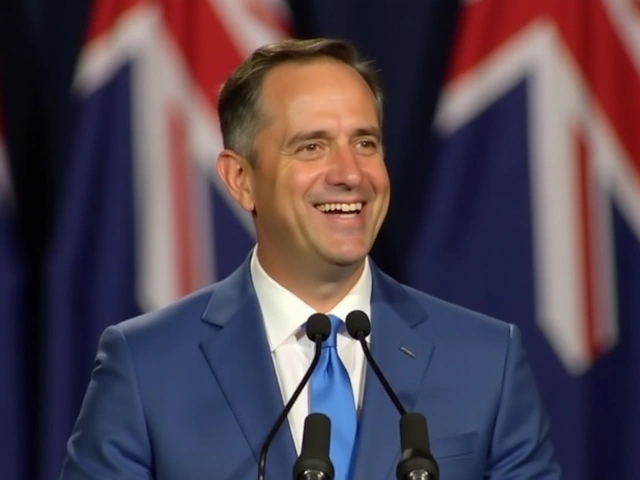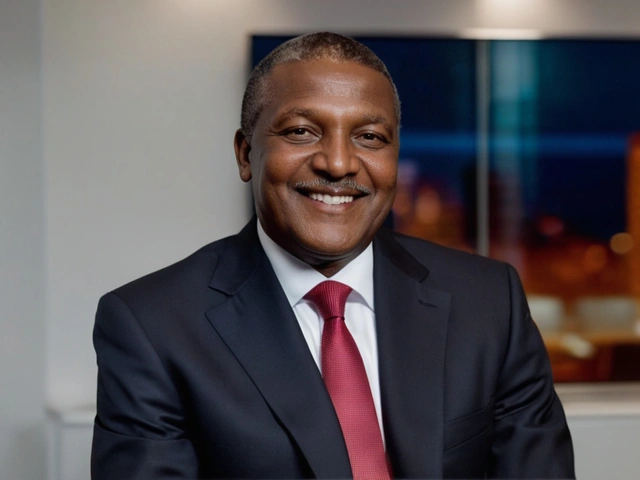President Ruto Exposes Ford Foundation's Alleged Role in Kenyan Protests: A Call for Accountability
In a recent address in Nakuru, President William Ruto of Kenya made startling accusations against the Ford Foundation, alleging that the organization has been financially supporting the recent anti-government protests in the country. These protests, primarily driven by Kenya’s younger generation, have emerged as a reaction to proposed tax increases. According to the President, the involvement of the Ford Foundation in such activities raises significant concerns about their motives and commitments to democracy within the region.
A Surge of Unrest
Kenya has experienced a surge of unrest recently, with numerous protests sprawling across major cities. The core of these demonstrations revolves around proposed tax hikes that have ignited the frustrations of many citizens, particularly the younger generation often referred to as Gen-Z. What started as peaceful protests soon escalated into violent confrontations, resulting in injuries and, tragically, fatalities. This spiraling chaos has prompted the government to look into the root causes and the forces backing these movements.
Ruto’s Warning and Call for Transparency
Speaking with a tone of determination and urgency, President Ruto condemned those encouraging and funding these protests. He pointed a critical finger at the Ford Foundation, a well-known global organization, questioning their intentions and seeking clarity on their involvement. “We must have a commitment to true democracy and not nurture chaos,” he emphasized. The President highlighted the importance of accountability and transparency from such influential entities, stressing that any organization supporting unlawful activities would face significant consequences under Kenyan law.

Ford Foundation’s Historical Role
The Ford Foundation, established in 1936, has a long history of promoting social justice and democratic values across the globe, including substantial contributions to Kenyan civil society groups and organizations. Over the decades, their funding has supported various initiatives aimed at human rights, governance, and community development within Kenya. However, Ruto’s recent allegations cast a shadow over these contributions, suggesting that some of the funds might have been diverted to fuel social unrest and anarchy.
Government Allies Stand United
During his address, President Ruto was flanked by key figures from his administration: Deputy President Rigathi Gachagua, Governor Susan Kihika, and an array of Members of Parliament (MPs) and Members of the County Assembly (MCAs). This united front demonstrated a solidified government stance against the protests and an unwavering commitment to maintaining stability and order within the nation. The message was clear: any attempts at undermining the government’s authority would be met with decisive action.
Gen-Z and the Voice of the Protests
The protests, primarily led by Kenya’s younger demographic, have shone a light on the broader issues facing the nation. Young Kenyans, grappling with economic challenges, high unemployment rates, and now impending tax hikes, have taken to the streets to voice their grievances. This generation, characterized by its digital savviness and global perspective, demands more from their leaders in terms of transparency, accountability, and economic reforms.

The Complexity of Foreign Funding
The controversy surrounding the Ford Foundation’s alleged role highlights the complex nature of foreign funding in local politics. While international organizations play a crucial role in promoting development and democracy, their involvement in domestic affairs can sometimes be contentious. Ruto’s accusations bring this tension to the forefront, prompting a necessary discussion on the boundaries and ethical implications of such financial interventions.
Future Implications and the Road Ahead
As Kenya navigates through these turbulent times, the allegations against the Ford Foundation may have far-reaching implications. It raises questions about the accountability of international donors and the safeguards in place to ensure their funds are utilized for their intended purposes. Moreover, it puts a spotlight on the Kenyan government’s approach to handling dissent and its commitment to upholding democratic principles.
A Call for Dialogue
Ultimately, the situation calls for open dialogue and a multi-faceted approach to address the underlying issues fueling the protests. The government, international donors, and civil society must work together to find common ground and build a more resilient and inclusive future for Kenya. Only through collaboration and transparent discourse can the nation hope to overcome its current challenges and pave the way for sustainable development.

Conclusion
Kenya stands at a crossroads, with President Ruto’s allegations bringing new dynamics to the ongoing discourse on governance, foreign influence, and the rights of its citizens. The coming days will undoubtedly test the country's resolve and its ability to foster a democratic and just society. As the world watches, the actions taken by both the government and organizations like the Ford Foundation will significantly shape Kenya's path forward.






Ethan Smith
July 16, 2024 AT 00:03President Ruto's recent remarks have sparked a complex dialogue about the role of foreign philanthropy in domestic unrest.
While the allegations against the Ford Foundation appear serious, it is essential to examine the evidence with a critical eye.
Historical funding patterns show that the foundation has supported civil society initiatives aimed at strengthening democratic institutions.
Nevertheless, any misuse of funds to incite violence would contradict the foundation's stated mission.
Transparency mechanisms, such as public disclosures and third‑party audits, are crucial for maintaining public trust.
The Kenyan government's request for an independent investigation aligns with best practices in governance.
Such an inquiry should consider both the source of the alleged funding and the channels through which it may have been distributed.
It is also important to recognize the legitimate grievances of the protesting youth, who are reacting to economic pressures.
Policy reforms that address tax concerns could reduce the impetus for unrest, independent of external influence.
International donors must balance support for human rights with respect for national sovereignty.
Over‑reliance on external funding can create dependencies that undermine local agency.
In this context, civil society groups should diversify their resources to maintain independence.
Moreover, the media plays a pivotal role in shaping public perception of foreign involvement.
Balanced reporting that avoids sensationalism will help the public form informed opinions.
Ultimately, a collaborative approach involving the government, civil society, and international partners offers the best pathway to stability.
Evelyn Monroig
July 25, 2024 AT 06:17Don't be fooled – this is classic elite manipulation. The Ford Foundation is a front for a shadow network aiming to destabilize Kenya for its own global agenda.
Gerald Hornsby
August 3, 2024 AT 12:30The stage is set, the actors are paid, and the script reads chaos. 🎭
Hina Tiwari
August 12, 2024 AT 18:43i feel for the youths, someything like tax get to you beutifully frustated to see for their future they can't bear these pressure. sorry for leaning out. hope everyone get better soon.
WILL WILLIAMS
August 22, 2024 AT 00:57Whoa, talk about fireworks! 🎇
Barry Hall
August 31, 2024 AT 07:10Let’s keep the discussion respectful and fact‑based. 👍
abi rama
September 9, 2024 AT 13:23It’s encouraging to see so many voices pushing for accountability – together we can find balanced solutions.
Megan Riley
September 18, 2024 AT 19:37Great points!!! Let's stay focused,, analyze the facts,,, and keep supporting each other!!!
Lester Focke
September 28, 2024 AT 01:50One must acknowledge the intricate tapestry of geopolitical influences that pervade contemporary civil movements; to reduce such phenomena to a simplistic donor‑beneficiary model is intellectually untenable.
Naveen Kumar Lokanatha
October 7, 2024 AT 08:03while we look at the big picture its also important to not forget on the ground realities help from foreign orgsits can be both a boon and a bane if not regulated properly
Alastair Moreton
October 16, 2024 AT 14:17Honestly, the drama feels overblown. Let’s cut the noise and see what the actual financial reports say.
Surya Shrestha
October 25, 2024 AT 20:30Indeed, the allegations merit a thorough, methodical, and transparent investigation; the implications for donor credibility are significant.
Rahul kumar
November 4, 2024 AT 01:43Hey folks, happy to share info: ford foundation public disclosures show grants for education in ke, not direct protest funds. check their site for details.
mary oconnell
November 13, 2024 AT 07:57Oh, please – as if the “philanthropic elite” would ever fund grassroots unrest without a meticulously drafted social‑engineering blueprint. #JustSaying
Michael Laffitte
November 22, 2024 AT 14:10The whole thing feels like a blockbuster sequel – same plot, new characters, and the audience still buying tickets.
sahil jain
December 1, 2024 AT 20:23Stay focused, keep the dialogue constructive, and remember that positive change starts with informed action.
Bruce Moncrieff
December 11, 2024 AT 02:37Curious how the proposed tax hikes intersect with the funding trails – maybe the protest momentum is more about economic stress than external meddling.
Dee Boyd
December 20, 2024 AT 08:50Morally, it is indefensible for any entity to exploit fiscal discontent for ulterior motives; such conduct violates the ethical code of international development.